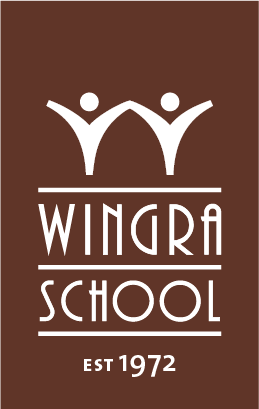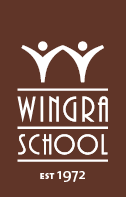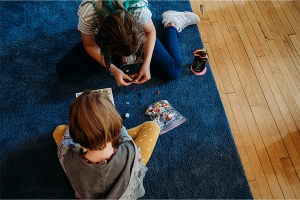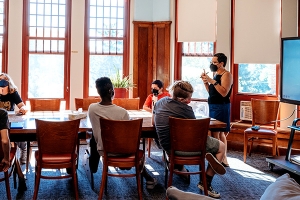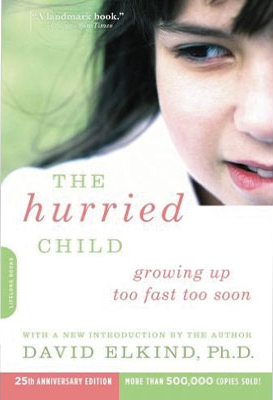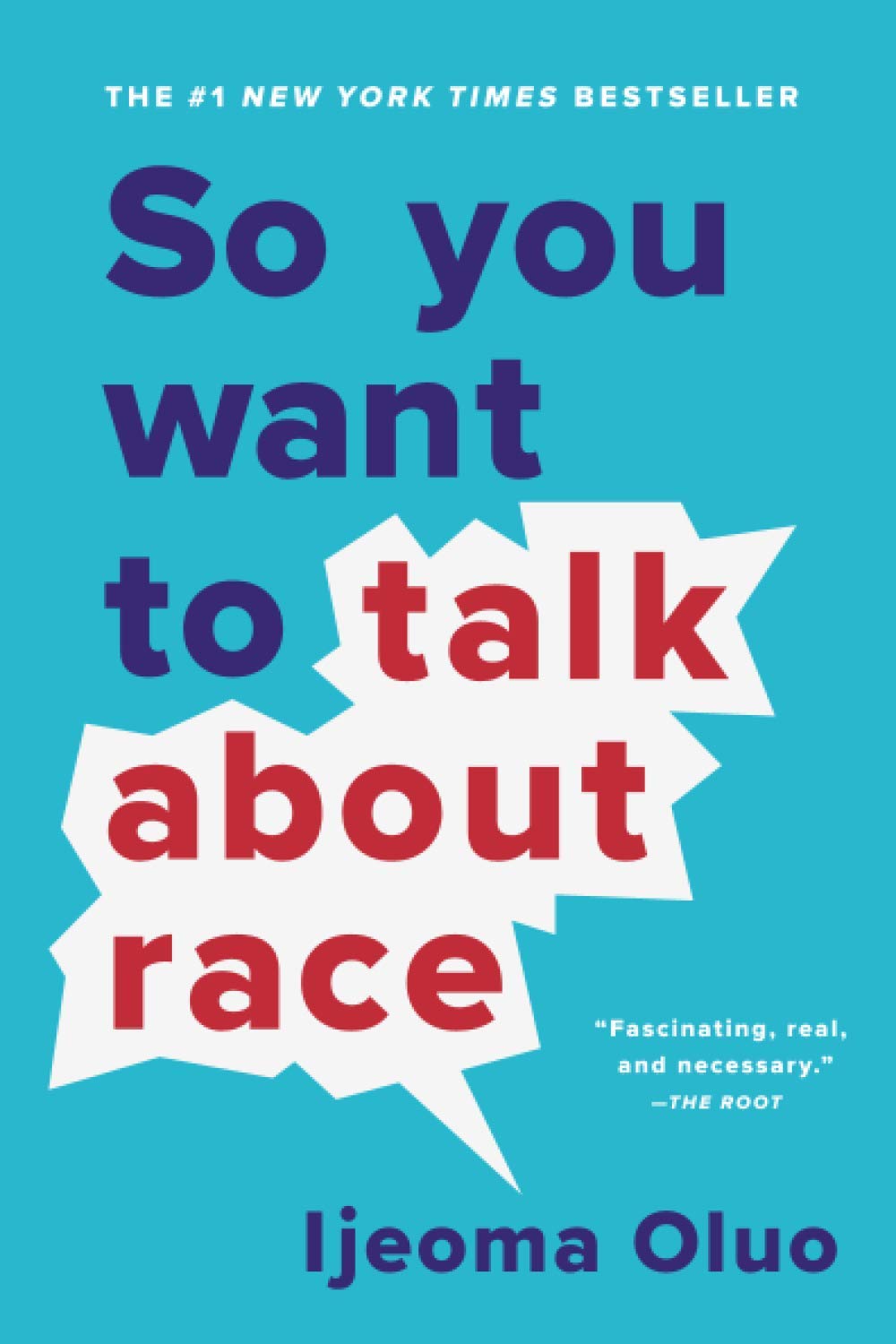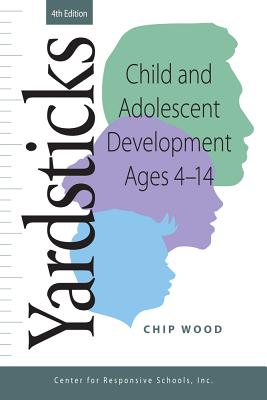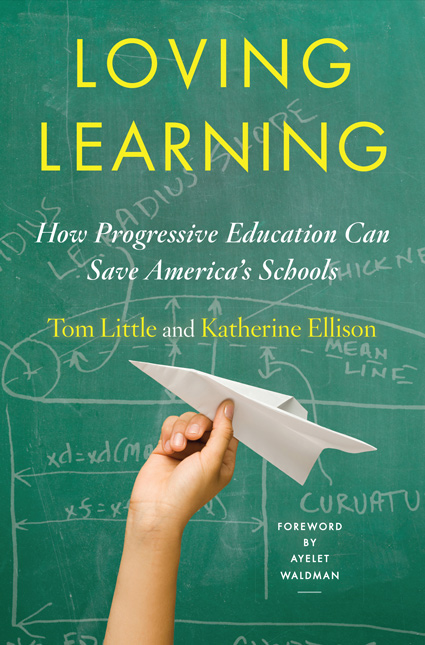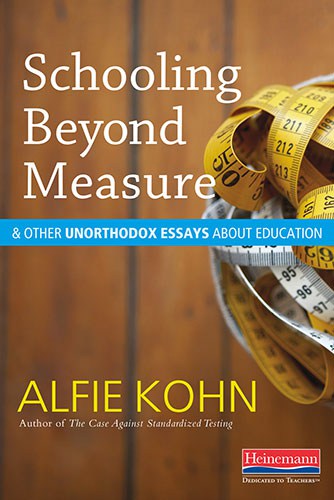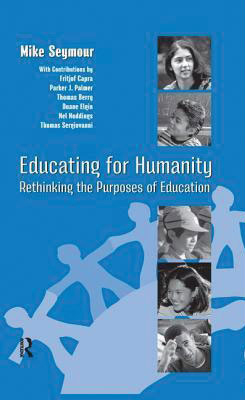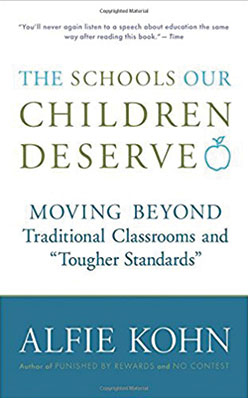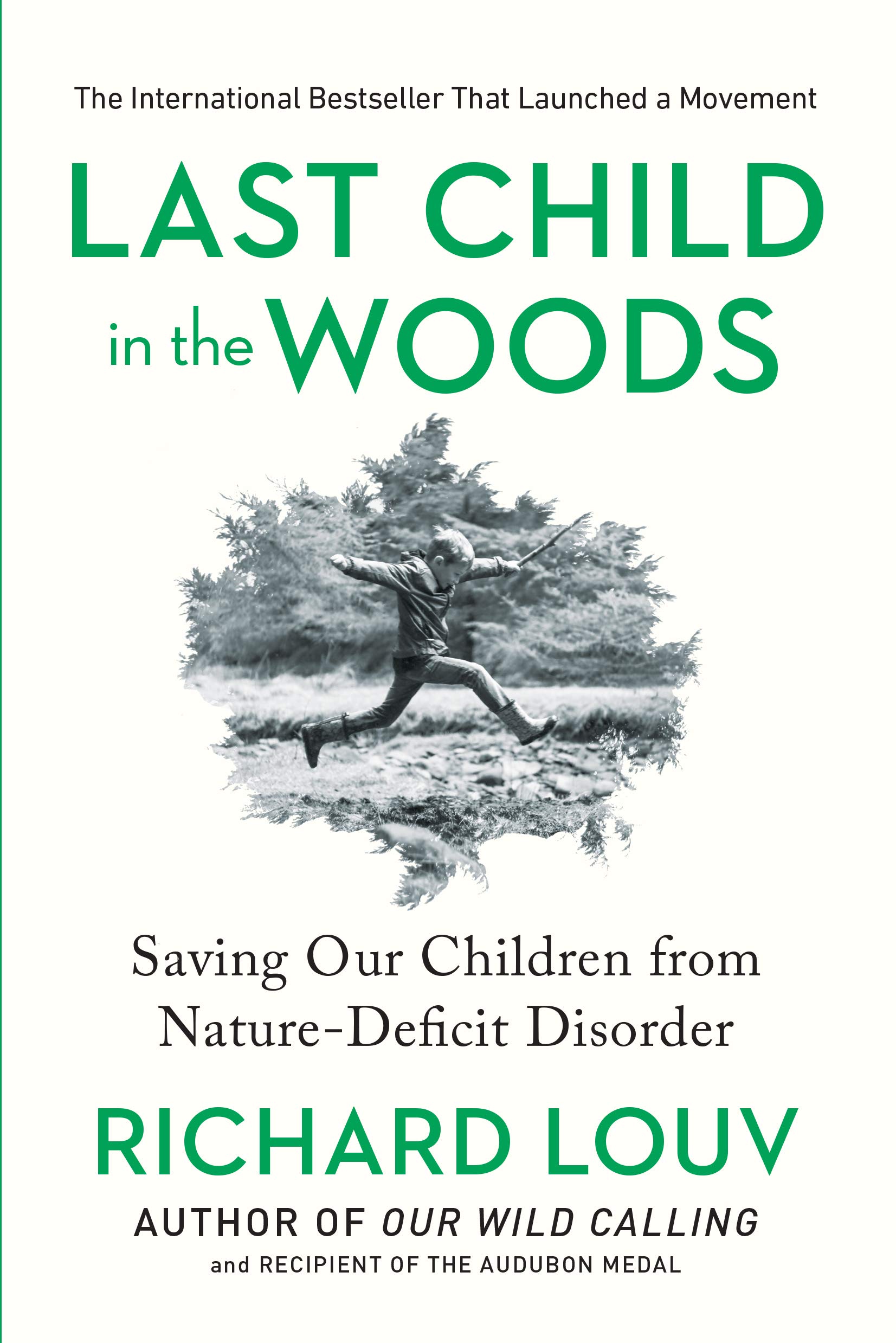An independent progressive school centrally-located in Madison, Wisconsin. Serving children ages five to fourteen.
Authentic Assessment
Eliminating tests and grades makes for greater learning.
The word assessment comes from the French assidre, which means to sit next to. The purpose of assessment is to give each learner, educator, and caregiver an authentic picture of the child’s present level of understanding and growth. We believe that a student progresses at his or her own rate in ways that their talents, challenges, and interests dictate. Because we see learning as an individualized activity, both learning and assessment are tailored to each child.
Working together, the student, family, and educators identify learning goals and evaluate the student’s success in reaching those goals. Each student’s development is assessed by means of regular observation, documentation, reflection, dialogue, and conferences. We do not use tests or letter grades, preferring to describe students as learners broadly and deeply in narrative form and through work sampling in a growth portfolio. Additional components of authentic assessment include photographs, dictations, anecdotal records, art projects, responses to a prompt, and checklists.
This approach to assessment is meaningful and relevant to the context of each student’s life and learning, is based on experience, is sensitive to a wide continuum of development, allows students to demonstrate learning in many ways, and emphasizes depth. By employing this type of assessment and instruction, teachers respect unique learning styles while ensuring that every student continues to grow academically, socially, and emotionally. It is our belief that those three areas of growth are intertwined.
Experiential Learning
Education is a matter of experience.
Learning at Wingra is an active, multi-sensory engagement between an individual and the world, a mutual contact, which empowers the learner and reveals the rich meaningfulness of everything around.
Experiential learning invites students to develop knowledge, skills, understandings, and values from direct experiences with the world. Learning that is considered experiential offers opportunities for students to:
• Reflect, critically analyze, and synthesize information
• Take initiative, make decisions, and be accountable for the results
• Engage intellectually, creatively, emotionally, socially, and/or physically
• Learn from natural consequences, mistakes, and successes
Experiential education strives to link the learner to the social world through real life contact with the democratic life of the community; to connect the learner to the wonders of the natural world through immersing the student in life and nature; to acquaint the learner with the realm of his or her own inner world through the arts, honest dialogue, and times of quiet reflection.
OUTDOOR LEARNING
At Wingra, we believe that spending time outside is good for the health and happiness of students’ bodies and minds. We notice the cultivation and the release of energy when we go outside with students and we take special care in carving out time to be outside for a variety of activities including play, nature-based science education, field trips, neighborhood walks, and even some morning meetings.
Nestled between Wingra Park, the UW-Arboretum, Children’s Glen, and the Southwest Bike Path, our location is ideal for immersing children in the outdoors. Our Outdoor Classroom, built with whole trees, was finished in 2015, winning the Mayor’s Design Award for Innovation and Sustainability: Green Placemaking in 2016.
Each level integrates time outdoors and environmental stewardship into their curriculum in unique ways, and we dedicate at least one day each year to spending the entire day outside as a whole school.
SERVICE LEARNING
Students in the Nest, Pond, Lake, and Sky pursue service learning projects each year to connect to people, places, and issues within our school, neighborhood, city, and world. Through this work, our students become actively engaged citizens and stewards while having a genuine impact. Service-Learning, based on the definition from the Community Works Institute, is an educational strategy that combines academic and social goals to meet real community needs. Projects have a compelling sense of purpose that resonates strongly with educators, students, and partners. There are both academic and service-related goals combined with meaningfully integrated reflection. Most importantly, engagement and reciprocity among all partners creates meaningful collaboration.
Some of the organizations our service learning groups have partnered with in the past include: UW Arboretum, Fritz Food Pantry at the Goodman Community Center, Gay Straight Alliance, WORT Community Radio, Little Free Libraries, Madison Public Library: Sequoya Branch, Dudgeon-Monroe Neighborhood Association, Clean Lakes Alliance, Madinah Academy, and Eagle Heights.
We learn by doing, if we reflect on what we have done. – John Dewey
Multi-age Collaboration
Age alone does not determine the skill level of a child.
A child’s maturity and sense of belonging are developed through multi-age classrooms and strong whole-school programming. Multi-age classrooms provide an environment where the talents and needs of individual students are emphasized and a more authentic sense of community is created in the classroom. Multiage groupings provide a flexible setting that recognizes children’s varied development and learning styles as well as honors the diversity in the group. The multiage classrooms are also designed to maximize the potential benefit of interactions and cooperation among children who vary in experience, maturity, and ability. There are frequent opportunities for the development of student leadership as children are encouraged to offer and request support from each other in all aspects of classroom activities. Since students are in a classroom for more than one year, teachers further develop student/ teacher/family relations and gain a better understanding of their students’ long-term development.
At Wingra School, we embrace John Dewey’s idea that education is not preparation for life; education is life itself. Learning takes place in a social environment, and through collaboration and connection with those around you. Our close-knit community forms as children learn together, discover connection and difference, and experience inclusion as cared for and respected members of the community. Within this safe environment, students can take educational and cognitive risks with the confidence of having a supportive network of adults and peers around them. We encourage individuals to understand their inter-connectedness within the school and beyond as they build relationships with others and consider the impact of their actions.
Integrated Thematic Units
Knowledge is retained when taught in context.
Knowledge and information are retained and flexibly applied when they are seen as interconnected networks, much like neural pathways, rather than isolated pieces. Teachers and students create integrated curriculum, based around a thematic unit rather than a single subject or skill. Those units incorporate academics, the arts, student voice, and social justice issues. Content is introduced and extended through diverse, open-ended learning experiences designed to challenge students at different levels and bring out personal intelligences and interests. As a group of learners becomes immersed in this shared inquiry, each individual contributes their unique perspective and talent, benefitting the group as a whole.
What Else Makes Wingra Special
Nestled between Wingra Park, the Arboretum, Children’s Glen, Madison Metropolitan Bus Lines, and the Southwest Bike Path, our location is ideal for immersing children in the outdoors and in the community. Wingra School sits on Ho-Chunk land and offers the following land acknowledgment:
We acknowledge that the land on which Wingra School sits is the rendering sacred and ancestral home of the Ho-Chunk Nation. Known as Teejop, or DeJope, to the Ho-Chunk people, the Madison area and beyond holds a continuous connection to land, water, and community. This land was ceded under duress and without free, prior, informed consent in the Treaty of 1832, and the history of colonization remains pervasive. This acknowledgment is integral to a shared future of partnership and collaboration. The traditional knowledge embedded in the Ho-Chunk way of life is a source of inspiration to offer respect and care for all beings – of which land is included – for all time.
Wingra educators are highly knowledgeable about child development and work to address the trends and challenges of modern childhood. They co-create developmentally appropriate curriculum with their teaching team and students, bringing their own creativity, insight, and love of learning into the classroom. Our teachers have a clear understanding of the progressive philosophy of the school and a strong commitment to it. Staff members collaborate and engage democratically to make decisions about most aspects of our program. Their dedication, expertise, and teamwork are what make progressive teaching practices possible at Wingra.
Our practice is grounded in an understanding of how children grow, develop, and learn. We include active and interactive learning experiences, varied instructional strategies, a balance between teacher-directed and child-initiated activities, integrated curriculum, and learning centers. Students are children and it is important to allow ample time for laughter, play, discussion, quiet time, and snacks. Learning is not a race timed by age or a competition or defined by a finite skill set. Children learn on a continuum; they move from easier to more difficult concepts and from simple to more complex strategies at their own pace. Teachers help students understand how they learn and their own areas of strength, challenge, and opportunity. Students are taught to exercise their voice in their own learning process and to make choices, set goals, keep track of their progress, and reflect on their growth and learning.
School and classroom communities are carefully nurtured through attention to relationships and routines that promote feelings of safety and belonging. People at Wingra know each other and are known well. We teach students to be compassionate, supportive, and inclusive through an intentional social curriculum.
Parents and caregivers are seen as important partners in student learning. A continuous exchange of information is critical to keeping parents and caregivers informed and involved. Partnerships are enhanced and solidified due to the time spent together on behalf of the child, recognizing and supporting shared goals. Opportunities exist for parents and caregivers to be involved in many aspects of the school and program.
As an independent school we have the autonomy to design and implement the kind of program we know is best for children. Wingra’s founders’ original intent was not to create a new school but to demonstrate to the Madison school district a more child-centered, multi-age approach in the hopes that they would implement it within the public schools. To this day, we strive to connect with other educators, education leaders, and schools to inquire, visit, and gather information about each other’s programs to learn and grow together.
